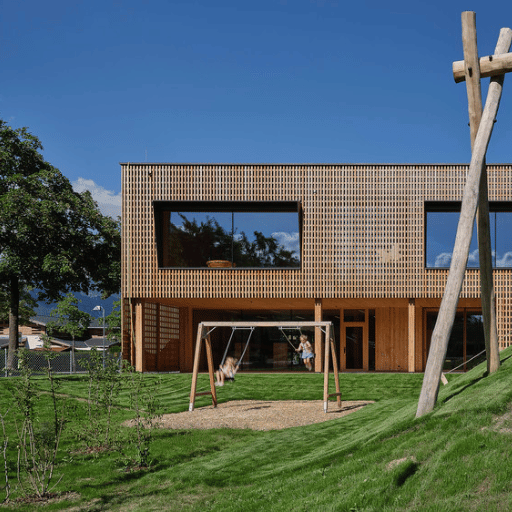Sonderpädagoge/Sonderpädagogin (Special Education Teacher) Role Interview (Kindergarten)
In this article, we’ve put together all the information you need to run an interview for a Sonderpädagoge/Sonderpädagogin (Special Education Teacher) in a Kindergarten in Austria. We’ve included a Sonderpädagoge/Sonderpädagogin (Special Education Teacher) job description, job requirements (useful for adding to job advertisements), common job interview questions to ask someone applying for your advertised Sonderpädagoge/Sonderpädagogin (Special Education Teacher) role, follow-up questions to ask your potential new hire and excellent answers that candidates give to Sonderpädagoge/Sonderpädagogin (Special Education Teacher) job interview questions. We’ll also look at what happens in an interview for a Sonderpädagoge/Sonderpädagogin (Special Education Teacher) and the hiring process after the interview.
Sonderpädagoge/Sonderpädagogin (Special Education Teacher) Role Job Description, Requirements, Questions
Role Job Description:
The role of a Sonderpädagoge/Sonderpädagogin, or Special Education Teacher, in Austria’s Kindergarten institutions is crucial in providing support and guidance to children with special educational needs or disabilities. These professionals work closely with students, their families, and other educators to create an inclusive and supportive learning environment.
One of the primary responsibilities of a Special Education Teacher is to assess the individual needs of each student and develop personalized education plans. They collaborate with other teachers and specialists to adapt the curriculum and teaching methods to meet the unique requirements of each child. Special Education Teachers also provide one-on-one or small group instruction to help students overcome learning challenges and develop their skills.
In addition to teaching, Special Education Teachers play a vital role in advocating for their students. They work closely with parents, guardians, and other professionals to ensure that the child’s needs are met both inside and outside the classroom. They may also provide guidance and support to parents in understanding their child’s educational needs and accessing appropriate resources.
Role Job Requirements:
To become a Special Education Teacher in Austria’s Kindergarten institutions, certain qualifications and skills are necessary. A bachelor’s degree in Special Education or a related field is typically required, along with a teaching certification. Additionally, having experience working with children with special needs is highly beneficial.
Special Education Teachers must possess excellent communication and interpersonal skills. They need to be able to effectively collaborate with parents, other educators, and specialists to create a supportive learning environment. Patience, empathy, and adaptability are also essential qualities for this role, as Special Education Teachers often work with children who may have behavioral or emotional challenges.
Role Job Interview Questions:
1. Can you describe your experience working with children with special educational needs or disabilities?
2. How do you approach individualizing education plans for students with diverse needs?
3. How do you collaborate with other teachers and specialists to support students with special needs?
4. Can you provide an example of a challenging situation you faced while working with a student with special needs and how you handled it?
5. How do you involve parents or guardians in their child’s education and ensure their needs are met?
Follow-up Questions:
1. How do you differentiate instruction to meet the diverse needs of students in your classroom?
2. Can you explain your approach to behavior management for students with special needs?
3. How do you stay updated on the latest research and best practices in special education?
Examples of excellent answers from candidates:
1. “During my previous role as a Special Education Teacher, I worked with a student who had dyslexia. I implemented multisensory teaching strategies, such as using manipulatives and visual aids, to help the student grasp reading concepts. We also collaborated with the school’s speech therapist to address any speech and language difficulties. Over time, the student’s reading skills improved significantly, and they gained confidence in their abilities.”
2. “In my experience, collaboration is key in supporting students with special needs. I regularly meet with other teachers and specialists to discuss individual student progress and brainstorm strategies to address their specific needs. For example, when working with a student with autism, we developed a visual schedule and social stories to help them navigate daily routines and social interactions. By consistently implementing these strategies across all settings, the student showed significant improvements in their communication and social skills.”
3. “When faced with a challenging situation with a student who had ADHD, I implemented a behavior management plan that included clear expectations, positive reinforcement, and frequent breaks. I also worked closely with the student’s parents to establish consistent routines and strategies at home. By providing a structured and supportive environment, the student’s behavior improved, and they were able to engage more effectively in their learning.”
Sonderpädagoge/Sonderpädagogin (Special Education Teacher) (Austria) Interview Schedule
To conduct a comprehensive one-hour interview for a Sonderpädagoge/Sonderpädagogin (Special Education Teacher) role in a Kindergarten in Austria, consider the following schedule:
- Introduction and overview of the role (5 minutes)
- Candidate’s experience and skills assessment (15 minutes)
- Job-specific questions (25 minutes)
- Follow-up questions and clarification (10 minutes)
- Candidate’s questions about the role and organization (5 minutes)
Best Practices for Sonderpädagoge/Sonderpädagogin (Special Education Teacher) Candidate Communication
After the interview for your Sonderpädagoge/Sonderpädagogin (Special Education Teacher) role (Austria), it is crucial to keep the candidate informed about the hiring process. Best practices include:
- Sending a personalized thank-you email to the candidate within 24 hours
- Provide a timeline for the Sonderpädagoge/Sonderpädagogin (Special Education Teacher) hiring process and when they can expect to hear back
- Regularly updating the candidate on their Sonderpädagoge/Sonderpädagogin (Special Education Teacher) job application status, even if there are delays
- Offering constructive feedback to unsuccessful candidates to help them improve for future opportunities at your Kindergarten
- Maintaining open and transparent communication throughout the entire process to ensure a positive candidate experience
Ready to start your hiring process?
Click the button above to get our simple-to-use Applicant Tracking System (ATS) that can be used to manage your hiring process.


